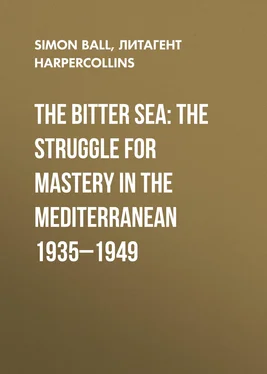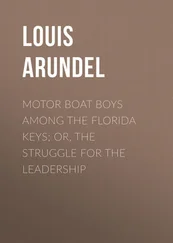Mussolini’s apologists were able to make a case because of the self-contradictions at the heart of Fascist plans for the Mediterranean. Mussolini contradicted himself about the purpose of a Mediterranean empire. Often he celebrated Italy’s Mediterranean destiny. He spoke of the Mediterranean as Italy’s natural space. Italy, Mussolini declared, was ‘an island which juts into the Mediterranean’. What was the Mediterranean to Italy, he asked: ‘it is life’. For the British, on the other hand, the Mediterranean was no more than ‘a short cut whereby the British empire reaches more rapidly its outlying territories’. 52 He would, he boasted, recreate Mare Nostrum– ‘our sea–as part of the great Fascist crusade to rebuild the Roman Empire. That empire had bound together the north and south of the Mediterranean; Italy and North Africa had been an organic whole. 53 Now Fascism would rebuild ‘the fourth shore’, the empire in North Africa. It would be peopled by Italian colonists. 54 One could only admire, wrote a British expert, ‘the courage of the Italian nation in boldly applying new methods to this old problem of colonization, and in setting examples which, if they succeed, will furnish models for others to follow’. 55 Freed of land hunger the Italian population would increase exponentially. In decades to come the Mediterranean, purged of the British, would house an Italian population rivalling that of the British Empire, the United States or the Soviet Union.
At other moments Mussolini disdained the Mediterranean. Far from being a natural space, it was a prison. The Fascists could not confine themselves to repopulating the Fourth Shore. They needed to escape the Mediterranean altogether. In 1934 he told the Second Quinquennial Assembly of the Fascist Party that Italy would ‘find the keys of the Mediterranean in the Red Sea’. ‘The historical objectives of Italy have two names,’ he declared, ‘Asia and Africa.’ 56 In 1938 Mussolini had ‘The March to the Oceans’ included in the official record of the Fascist Grand Council. It claimed that Italy was imprisoned in the Mediterranean:
The bars of this prison are Corsica, Tunisia, Malta, and Cyprus. The guards of this prison are Gibraltar and Suez. Corsica is a pistol pointed at the heart of Italy; Tunisia at Sicily. Malta and Cyprus constitute a threat to all our positions in the eastern and western Mediterranean. Greece, Turkey, and Egypt have been ready to form a chain with Great Britain and to complete the politico-military encirclement of Italy. Thus Greece, Turkey, and Egypt must be considered vital enemies of Italy and of its expansion…Once the bars are broken, Italian policy can only have one motto–to March to the Oceans. 57
What did Mussolini want? A Mediterranean Empire? Or was the Mediterranean merely a prison from which he must break free to achieve WeltmacM Whatever the answer, the first step was the same: Italy had to defeat the British.
The contradiction in Fascist goals was actually less important than the contradiction in Fascist methods. Whereas the difference between Mare Nostrum and the Prison was only intermittently debated, arguments within the Fascist elite about methods of expansion were constant. There were two main schools of thought. On one side were those who advocated mezzi insidiosi, ‘insidious methods’, the use of stealth and dissimulation to achieve long-term goals. The driving force behind Mediterranean expansion should be political warfare. Through subversion, propaganda and espionage the Fascists could undermine their rivals. Self-doubt and internal divisions would cause them to collapse. If military force was to be used, it should be limited and aimed at weak opponents. The most useful type of military power was provided by special forces. They would engage in asymmetric warfare, using a few men armed with innovative weapons to cause disproportionate amounts of damage to the enemy. The Italians were pioneers in special forces. The navy’s ‘Special Weapons Section’ was tasked with using explosive-filled motorboats and ‘human torpedoes’ to bring the British Mediterranean Fleet to its knees. 58 Large conventional armed forces were also important but they were a ‘luxury fleet’, cowing and deterring potential enemies whilst the mezzi insidiosi took their toll. ‘Our fleet has no battleships; it has fast cruisers with little or no defences; it has good destroyers, good submarines. It is thus able to engage in little more than…guerrilla warfare at sea,’ the head of Italy’s armed forces, Pietro Badoglio, warned Mussolini in 1935. 59
This cannot be true Fascism, others objected. The practice of diplomacy, albeit laced with terrorism, hardly suited the needs of a regime whose claims to violent, masculine squadrismo were beginning to look distinctly middle-aged. The Second Quinquennium reminded everyone that Fascism had done nothing violent or heroic for at least ten years. 60 Fascism would thrive on heroic conflict. The road to world power was paved by catalytic wars rather than sneaky subversion. 61 The Italian armed forces should be expanded and re-equipped, most especially with the weapons of total war, the bomber and the battleship. These forces were far from a luxury. They were there to be used. If the democracies showed signs of coalescing to face the threat, then Italy too would need to seek congenial allies, most notably Nazi Germany.
Throughout the 1930s the dispute over methods was a closely fought battle. In 1936 Admiral Domenico Cavagnari, the professional head of the Italian navy, declared that mezzi insidiosi showed a lack of ambition. Responding to Badoglio’s scepticism, in August 1936 he ordered his officers to concentrate on building a battlefleet capable of attacking the British in conjunction with the Nazi Kriegsmarine. 62 The predicted date for a war was 1942. The Duce formally proclaimed the Italian-German Axis on 1 November 1936 to an immense and enthusiastic crowd’ in a speech in the Piazza Duomo of Milan. His words were later broadcast in the major Mediterranean languages–English, French, Greek, Spanish and Arabic. He told Hitler’s personal representative that ‘our relations with London are very bad and cannot improve’. In return Hitler’s message was: ‘that we should know that he regards the Mediterranean as a purely Italian sea’. 63 Mussolini’s ‘tragedy’ was that his regime was supremely well equipped for mezzi insidiosi whereas its lack of material resources hobbled its preparation for total war.
Mezzi insidiosi continued in full force despite the Axis. In August 1935, the Royal Navy had decided that its great base at Malta was too dangerous as a wartime berth for the Mediterranean Fleet. Whenever there was a crisis the Fleet would have to steam to Alexandria, its main harbour in Egypt. Unlike Malta, however, Alexandria was far from being an ideal anchorage. Although offering the charms of a cosmopolitan and well-stocked city to sailors, it had real military disadvantages. Alexandria did not have a dockyard that could repair any damaged ships. Any warship damaged by accident or enemy action would have to leave the Mediterranean altogether. And Alexandria’s harbour mouth was notoriously narrow. If a ship was sunk within it, the entire British fleet would be trapped. Indeed, days after war in Abyssinia was declared, the Italian liner Ausonia -‘the most luxurious steamer on the Europe–Egypt service’–mysteriously caught fire in the entrance to Alexandria Bay. 64 British destroyers raced to the scene and, at considerable risk to themselves, nosed up to the Italian ship and pushed it out of the way. ‘British naval men’, remarked a journalist who reported the story, ‘have their own private opinion of the burning of this ship in this particular place.’ 65
Читать дальше












